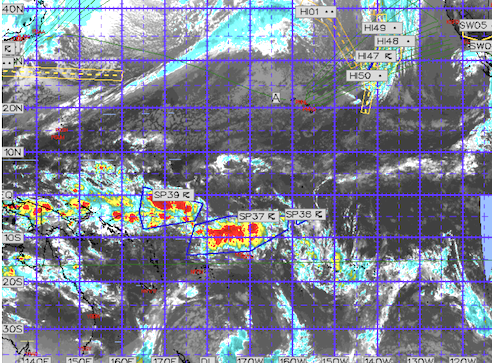
A collaborative project between OMS, the University of Edinburgh, and the University of Colorado at Boulder celebrated the opening, by Orbital Micro Systems (OMS), of the International Center for Earth Data (ICED) at the University of Edinburgh in Scotland. OMS selected the University of Edinburgh as the site for ICED due to the institution’s prolific data sciences program and interest in forging commercial relationships. The partnership between OMS and the University enables ICED to quickly serve global markets from one of the world’s centers of data science excellence.

ICED - Near real-time Earth Observation data
The project between OMS, the University of Edinburgh, and the University of Colorado at Boulder, is hosted at ICED, described as ia commercial and market-sustainable platform that leverages the latest in data science and cloud services to gather, integrate, and disseminate Earth Observation data. The announcement states that the data generated from ICED will result in highly reliable, frequent weather and environmental information that will empower governments, businesses, and consumers to make timely decisions that increase safety and ensure economic viability.
William Hosack, chief executive officer of OMS stated that ICED is the result of a collaboration among the best and brightest minds in data science, machine learning, artificial intelligence, and satellite technology, working synergistically to create a platform that will deliver unprecedented quality, quantity, and frequency of Earth Observation data. ICED fills a void in multiple markets that require immediate visibility into weather and other environmental factors that can impact business performance and emergency preparedness. They believe the information derived from ICED will have a profound impact on the safety, security, and prosperity of stakeholders worldwide in a multitude of sectors, such as aviation, maritime, insurance, agriculture, and civil preparedness.
ICED subscribers will have access to reliable and timely information from OMS’ innovative Low Earth Orbit (LEO) satellite technology that uses advanced passive microwave radiometry to penetrate storms and deliver a comprehensive view of weather and environmental conditions — thus leading to much more accurate forecasts.
The processing and alignment of datasets from the OMS Global Environmental Monitoring System (GEMS) satellites and multiple public and private sources facilitates more accurate weather insights in underserved areas of the world that may not have the resources to process raw data into local models necessary for appropriate forecasting and planning.

